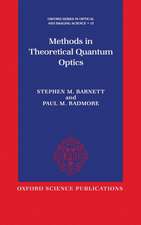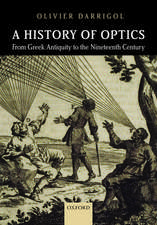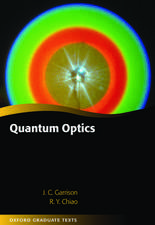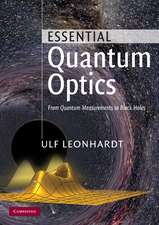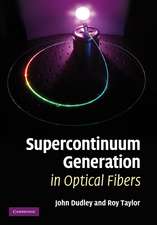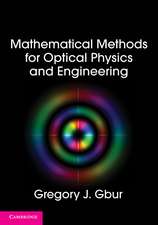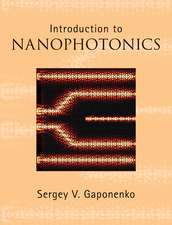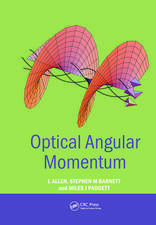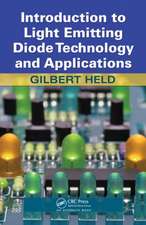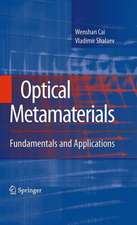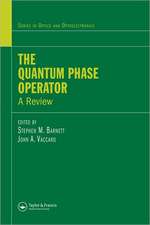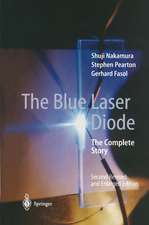Phase Space Methods for Degenerate Quantum Gases: International Series of Monographs on Physics
Autor Bryan J. Dalton, John Jeffers, Stephen M. Barnetten Limba Engleză Hardback – 12 noi 2014
Din seria International Series of Monographs on Physics
-
 Preț: 215.65 lei
Preț: 215.65 lei - 19%
 Preț: 445.96 lei
Preț: 445.96 lei - 14%
 Preț: 714.11 lei
Preț: 714.11 lei - 23%
 Preț: 2075.83 lei
Preț: 2075.83 lei - 16%
 Preț: 718.83 lei
Preț: 718.83 lei - 11%
 Preț: 704.40 lei
Preț: 704.40 lei - 16%
 Preț: 633.57 lei
Preț: 633.57 lei - 13%
 Preț: 663.67 lei
Preț: 663.67 lei - 14%
 Preț: 766.72 lei
Preț: 766.72 lei - 14%
 Preț: 704.07 lei
Preț: 704.07 lei - 14%
 Preț: 571.20 lei
Preț: 571.20 lei - 24%
 Preț: 356.62 lei
Preț: 356.62 lei - 20%
 Preț: 353.88 lei
Preț: 353.88 lei - 14%
 Preț: 911.43 lei
Preț: 911.43 lei - 32%
 Preț: 1582.79 lei
Preț: 1582.79 lei - 19%
 Preț: 414.57 lei
Preț: 414.57 lei - 27%
 Preț: 1252.50 lei
Preț: 1252.50 lei - 18%
 Preț: 1407.81 lei
Preț: 1407.81 lei - 19%
 Preț: 390.19 lei
Preț: 390.19 lei - 25%
 Preț: 621.96 lei
Preț: 621.96 lei - 31%
 Preț: 1008.95 lei
Preț: 1008.95 lei - 18%
 Preț: 1973.21 lei
Preț: 1973.21 lei - 31%
 Preț: 1336.11 lei
Preț: 1336.11 lei - 27%
 Preț: 1451.73 lei
Preț: 1451.73 lei - 19%
 Preț: 648.55 lei
Preț: 648.55 lei - 15%
 Preț: 477.58 lei
Preț: 477.58 lei - 31%
 Preț: 606.75 lei
Preț: 606.75 lei - 13%
 Preț: 429.15 lei
Preț: 429.15 lei - 22%
 Preț: 490.25 lei
Preț: 490.25 lei - 23%
 Preț: 960.00 lei
Preț: 960.00 lei - 17%
 Preț: 510.51 lei
Preț: 510.51 lei - 31%
 Preț: 810.74 lei
Preț: 810.74 lei - 23%
 Preț: 436.00 lei
Preț: 436.00 lei - 27%
 Preț: 717.64 lei
Preț: 717.64 lei - 13%
 Preț: 452.14 lei
Preț: 452.14 lei - 18%
 Preț: 1355.76 lei
Preț: 1355.76 lei - 26%
 Preț: 1739.96 lei
Preț: 1739.96 lei
Preț: 731.94 lei
Preț vechi: 1001.08 lei
-27% Nou
Puncte Express: 1098
Preț estimativ în valută:
140.06€ • 147.97$ • 117.10£
140.06€ • 147.97$ • 117.10£
Carte tipărită la comandă
Livrare economică 21-27 decembrie
Preluare comenzi: 021 569.72.76
Specificații
ISBN-13: 9780199562749
ISBN-10: 0199562741
Pagini: 432
Dimensiuni: 175 x 255 x 27 mm
Greutate: 0.87 kg
Editura: Oxford University Press
Colecția OUP Oxford
Seria International Series of Monographs on Physics
Locul publicării:Oxford, United Kingdom
ISBN-10: 0199562741
Pagini: 432
Dimensiuni: 175 x 255 x 27 mm
Greutate: 0.87 kg
Editura: Oxford University Press
Colecția OUP Oxford
Seria International Series of Monographs on Physics
Locul publicării:Oxford, United Kingdom
Recenzii
This insightful book provides an expert guide to the application of phase-space methods in the burgeoning field of quantum atom optics. Building on their years of research experience in the field, the highly-respected authors provide a resource that will prove invaluable to graduate students and experienced researchers alike. The defining feature of this book is the comprehensive theoretical description of phase-space methods for both bosonic and fermionic systems. End-of-chapter exercises and the numerous appendices will make this an invaluable companion to graduate students embarking on a career in this field.
Notă biografică
Bryan Dalton obtained a PhD degree in 1966 from Monash University. Following postdoctoral positions at University of Chicago and Australian National University, he joined the Department of Physics, University of Queensland in 1970, retiring as a Reader in 2000. His research was in theoretical quantum optics on topics such as non-classical states of light, coherent population trapping, laser-induced continuum structures, quantum beats, squeezed light spectroscopy and macroscopic cavity quantum electrodynamics. After 2000, he held research fellow positions at University of Sussex and Swinburne University of Technology, where he is currently an Adjunct Professor. He recently spent six months at University College, Cork as an ETS Walton Visiting Fellow. His more recent research interests have included decoherence effects in quantum computers, phase space theory in quantum and atom optics for Bose-Einstein condensates and Fermi gases, and entanglement theory for identical particle systems.John Jeffers is a Reader in the Physics Department at the University of Strathclyde and has been a researcher in quantum optics for twenty years. He obtained his PhD in Theoretical Physics from the University of Essex in 1993. Since then his research interests have included quantum dielectrics, quantum imaging, retrodictive quantum theory, quantum communication, quantum optical amplification and degenerate quantum gases.Stephen Barnett has been Professor of Quantum Optics since 1995, first at the University of Strathclyde and more recently at the University of Glasgow. He is best known for his discovery, with David Pegg, of the quantum phase operator, but he has wide-spread interests in quantum optics, quantum information, optics and, of course, cold-atom physics. His work has been recognised by the Royal Society, the Royal Society of Edinburgh and the Optical Society of America, all of which have elected him a Fellow. He was awarded the 2013 Dirac Medal and Prize for theoretical physics by the Institute of Physics.

